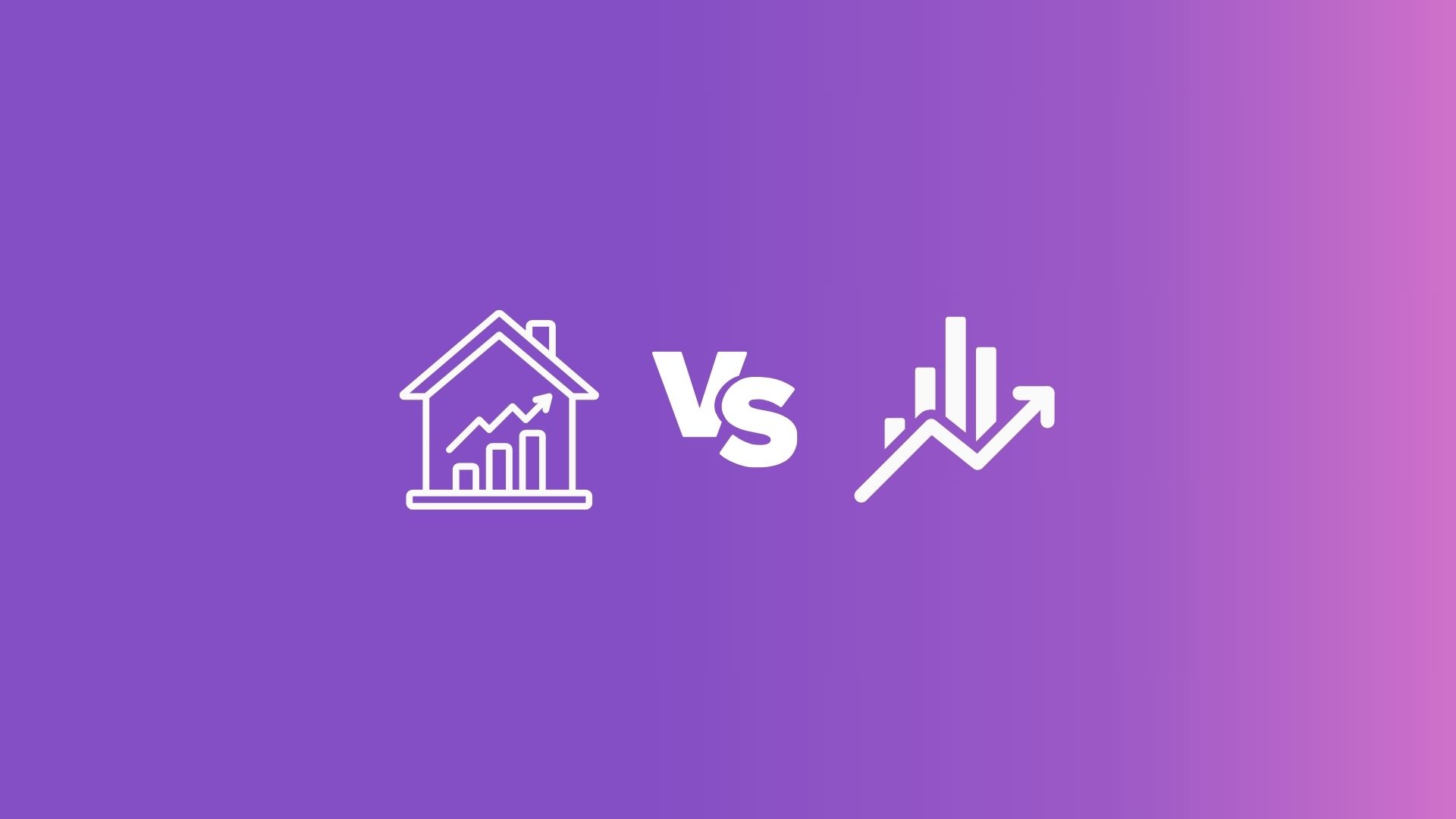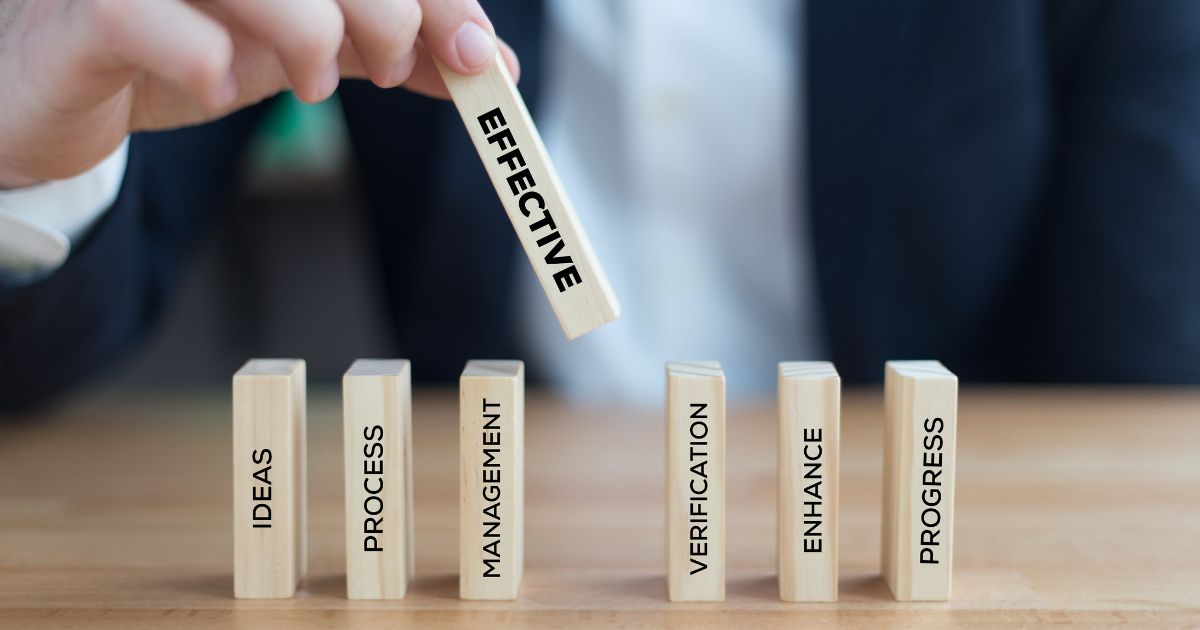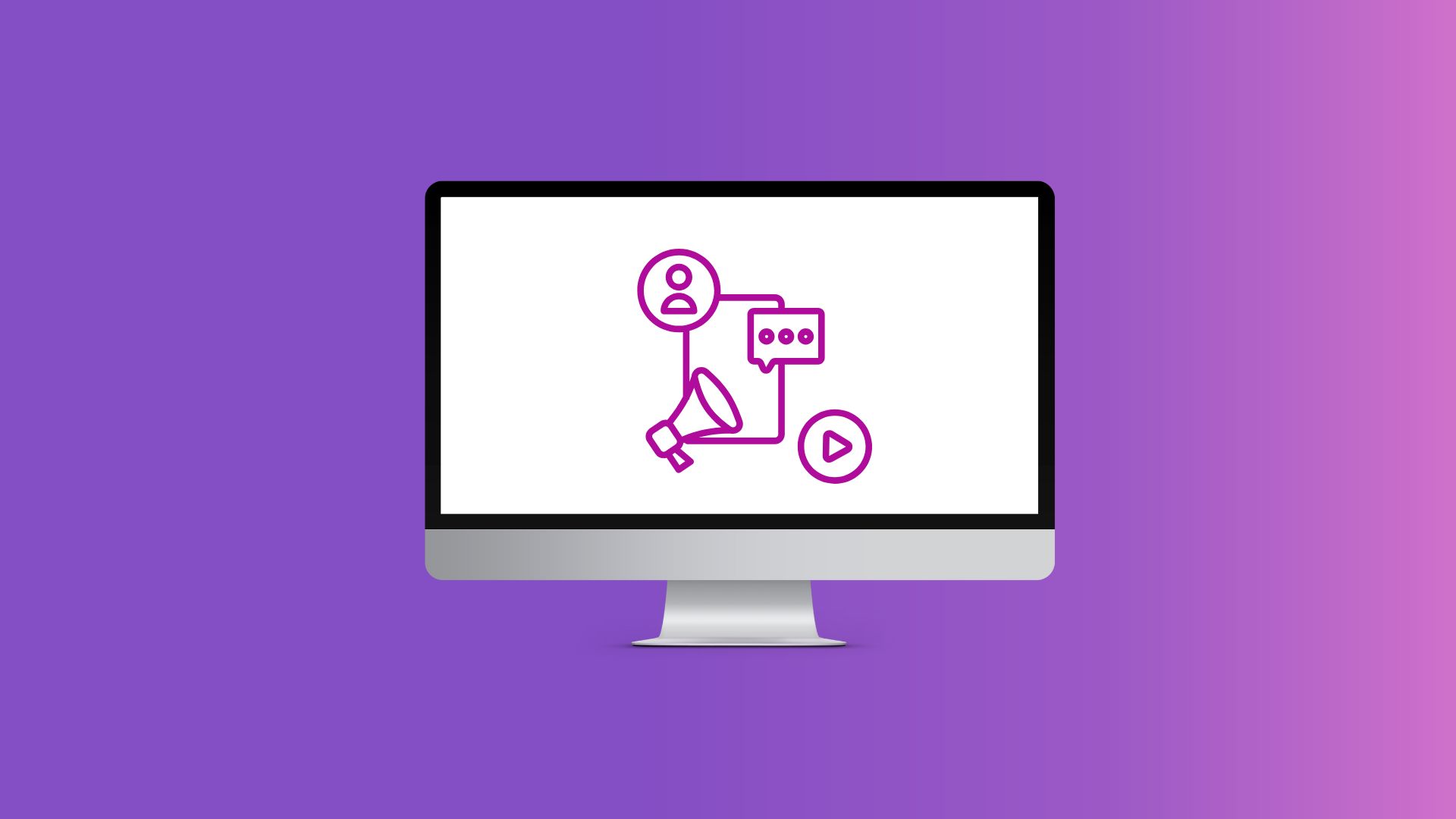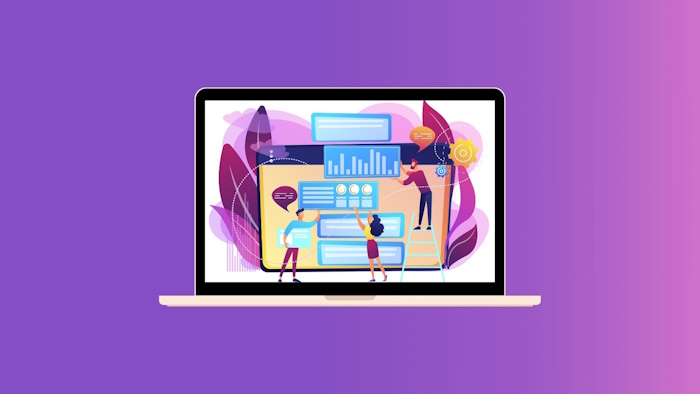In-House Marketing vs Agency: Which Is Best for Your Business?

What is In-House Marketing?
In-house marketing involves assigning all marketing responsibilities to an internal team, allowing the company complete control over marketing strategies and campaigns. Internal marketing teams handle every aspect of a marketing campaign, including initiatives aimed at increasing brand awareness and driving customer engagement.
A typical structure of an in-house marketing team includes:
- Marketing Manager or Director: Oversees the entire in-house marketing team and aligns marketing strategies with the company’s vision.
- Brand Manager: Manages the branding direction, ensuring consistency across all marketing efforts.
- Section Managers: Specialists who handle digital marketing, content marketing, and social media.
- Creative Director: Oversees marketing visuals and messaging, managing the creative team.
- Creative Team: Includes graphic designers, copywriters, and photographers who execute the brand’s visual and textual content.
Additionally, an in-house team often includes marketing analysts or consultants who ensure that campaigns align with industry benchmarks and company goals.
Introduction to Marketing Options
Marketing is a crucial aspect of any business, and companies have various options to choose from when it comes to managing their marketing efforts. Two popular options are in-house marketing and agency marketing. In-house marketing involves managing marketing activities within a company by employing an in-house team, while agency marketing involves hiring an external marketing agency to handle marketing efforts. Both options have their pros and cons, and the choice between them depends on the unique needs and resources of each business.
Overview of Marketing Approaches
In-house marketing teams offer a deeper understanding of the brand and its goals, providing a more personal touch and greater control over marketing activities. On the other hand, marketing agencies offer a wider range of services and expertise, providing access to specialized skills and scalable strategies.
A hybrid approach, which combines elements of both in-house and agency marketing, can also be an effective option for businesses. This approach allows companies to leverage the benefits of both in-house and agency marketing, such as control and expertise, to create a comprehensive digital marketing strategy.
What is a Marketing Agency?
A marketing agency is an external team of marketing specialists and experts.
They develop marketing strategies for other businesses or organizations. Agency marketing teams provide a diverse range of skill sets necessary for effective digital marketing strategies, contrasting the ease of accessing specialized talent within agencies against the challenges of recruiting and building a comprehensive in-house team. Marketing agency teams work independently in terms of manpower and location. An online marketing agency can be particularly cost-effective for short-term projects and provides access to advanced marketing software for tracking and improving campaign performance.
There are many benefits to hiring a digital marketing agency. Typically, an external marketing agency offers a full suite of services. A full-service agency can help you in these areas:
- Market research: Focuses on research around your target audience. This includes analysis of marketing trends and competitor movements.
- Public relations (PR): Establishes connections with journalists and bloggers. Improves your brand reputation in the industry.
- Digital marketing: Develop a digital marketing strategy for your business. This covers social media, search engines, email, and PPC advertising.
- Brand development: Creates a branding that fits your vision. Ensures brand familiarity across marketing channels.
- Creative services: Provides creative direction for your marketing campaign. This includes graphics, copywriting, and website development.
Digital marketing experts within these agencies can provide specialized services and access to the latest marketing trends and technologies, enhancing the overall effectiveness of your marketing efforts.
Marketing agencies also monitor the progress of marketing processes. They use innovative tools to optimize your every marketing activity.
In-House vs. Agency: Cost
Costs are the number one point of comparison when deciding between marketing agency vs in-house team.
In-house cost
Among B2B businesses in the United States, 38% have in-house marketers. It’s safe to say that doing marketing in-house is not for everyone.
For businesses, their number one consideration is the expenses. The costs could vary for business, depending on size and nature. Here’s how businesses allocate their budget to an in-house team.
The estimated costs are calculated on annual reference unless otherwise stated.
Salaries for marketing staff:
- Marketing director: $180,000 – $275,000
- Brand manager: $110,000 – $170,000
- Digital marketing specialist: $60,000 – $100,000
- Social media manager: $55,000 – $75,000
- Content marketing manager: $80,000 – $110,000
- Creative director: $110,000 – $140,000
- Marketing analyst: $70,000 – $100,000
- Graphic artist: $50,000 – $75,000
- Copywriter: $40,000 – $70,000
Benefits, training, and development expenses:
- Benefits: These include health insurance, performance bonuses, and other perks. For example, health insurance per employee could cost up to $7,000 annually.
- Training: It’s recommended to invest in employee training and development. This covers upskilling courses and industry conferences. On average, training could cost between $1,000 – $3,000 per employee.
Overhead costs:
- Office space: You might need 2,000 square feet of space for 10-15 employees. Office space could cost between $80-$120 per square foot.
- Digital tools: You need access to digital marketing platforms. Team subscriptions could cost between $8,000-$10,000 annually.
Agency cost
The number of ad agencies continues to increase every year. In 2024, there are 433,000 marketing agencies worldwide. That’s a 2.6% increase compared to 2023.
Flexible pricing models are a benefit of agency marketing. A digital marketing agency typically offers these pricing models:
- Monthly retainer: Requires fixed monthly fees. There’s an agreed-upon set of services each month. Typically, marketing agencies charge a minimum of $3,000 for monthly retainers.
- Project-based: Requires corresponding fees for each project. This is perfect for small to medium-sized businesses. The fees depend on the complexity of the project. For example, a web development project could start at $4,000.
- Performance-based: Fees are based on the performance of the marketing strategy. This gives clients assurance in terms of value. For instance, fees could increase based on website traffic or conversion rates.
- Hourly rate: Requires hourly rates for the services of an external agency. This is typically used for marketing consultation projects. Hourly rates could cost between $75 to $120.
Marketing agencies can maximize your marketing investment. That’s particularly true if you choose the pricing model that fits your marketing needs.

In-House vs. Agency: Effectiveness
The process of achieving goals differs between an in-house team and a digital marketing agency.
In-house effectiveness
Naturally, an in-house team has deeper familiarity with the business and the company’s culture. That’s a significant advantage for an in-house marketing team. Aligning marketing strategies with the company’s culture is easier for an in-house team.
Doing digital marketing in-house could be more effective in several cases. Here are the reasons why:
- Familiarity: They know the company from the inside and out. An in-house marketing team is instilled with the company’s values. That could be reflected in the marketing strategy they employ.
- Decision-making: It’s easier to make the right decision, branding-wise. Again, the marketing department knows the company’s culture. There’s no trouble deciding which action to take.
- Consistency: In-house teams can easily centralize their branding strategies. Consistency is easier to attain for internal teams.
Agency effectiveness
A marketing agency achieves goals through a different approach, providing a competitive edge through specialized expertise. In-house teams focus on aligning strategies with company branding. On the other hand, marketing agencies focus on industry trends and benchmarks. Marketing professionals within these agencies bridge the gap between a company’s internal culture and the external services offered, utilizing their expertise to enhance overall marketing efforts.
Of course, agency teams still align with company goals. However, the fresh ideas they bring to the table are game-changing. Here’s why many businesses trust an agency team:
- Specialized expertise: Agencies have specialized experts in each area. That’s an advantage of agency marketing. Clients don’t need to invest in staff training and development.
- Industry experience: Choose a digital marketing agency relevant to your niche. Agencies should have experience working with multiple clients in your industry. Check their client testimonials and reviews.
- Innovation: Agencies spend lots of time immersed in market trends. They attend industry conferences, workshops, and expos. This equips them with innovative ideas to offer to potential customers.
Comprehensive digital marketing strategies offered by agencies are crucial for enhancing online performance and visibility.
Marketing agencies and in-house teams utilize digital tools in executing a marketing campaign.

In-House vs. Agency: Tools and Technology
Marketing agencies and in-house teams utilize digital tools in executing a marketing campaign.
In-house tools and technology
Companies allocate a marketing budget for digital tools and technology. It’s almost impossible to execute a business strategy without these tools.
However, there are some reservations about in-house marketing. It’s a significant investment, particularly for these two reasons:
- Costs: Digital tools aren’t a one-off purchase. These days, most platforms require monthly or annual fees.
- Limitations: Staff should be trained in handling tools. Limited technical expertise could hinder a tool’s optimum capability.
This isn’t a problem if your staff has expertise in manipulating tools. But if not, you’re also spending bucks on their technology training. That could be a deal-breaker for businesses with limited resources.
Agency tools and technology
Agencies already have a broad range of tools at their disposal. They invest a lot in technology. Remember, they utilize these tools for other clients as well.
If you’re hiring a digital marketing agency, evaluate the tools they have. Their access to cutting-edge technology will further maximize your investment. The right digital marketing agency should have tools that address your needs.
Also, consider these points when evaluating their technology expertise:
- No direct costs: Look for agencies that don’t charge for tool subscriptions. Again, they should already have these at their disposal.
- Beta access: Agencies shouldn’t have any trouble accessing beta features. Digital platforms usually provide beta access to reputable agencies.
One advantage of team agency is cost-effectiveness. Agencies already have subscriptions to tools that you need. This ultimately cuts back on your costs and expenses.

In-House vs. Agency: Flexibility and Scalability
Handling varying amounts of tasks is another consideration for choosing a marketing team.
In-house flexibility
Marketing is among the Top 10 industries with the highest employee burnout rates. How much workload can your team handle? Can they manage sudden surges in tasks?
Companies pay attention to workloads, especially internal marketing teams. However, there’s not much leeway to work with.
Many businesses struggle with project management. Here’s why:
- Limited skill set of a smaller marketing team
- Difficulties in handling big orders
- Potential for burnout and heavy stress
Stress can lead to decreased productivity for a team. Quick scaling then becomes a huge challenge for a business.
Agency flexibility
In-house marketing still has the advantage of company culture awareness. However, there will come a time when you need to scale quickly.
That’s where agency marketing enters the picture. They have the manpower and tools for quick scalability. Here’s how they do it:
- Adequate manpower for quick scalability
- Flexibility to scale down if requested
- Ability to work on multiple projects at the same time
Scalability is a top reason why businesses tap into agency work. As external partners, they can easily adapt to your needs. Just ensure that they don’t regress in terms of product quality.
In-House vs. Agency: Control and Collaboration
Businesses like to have complete control, whether they opt for internal or external teams.
In-house control
Direct communication is the top benefit of internal teams. There’s little leeway for any miscommunication.
Moreover, companies can have total control over all activities. They could secure all company data and strategies. After all, data confidentiality is one of the industry best practices.
Here’s why businesses love the control aspect of internal teams:
- Total control over marketing decisions and processes
- Direct interdepartmental collaboration and communication
- Full confidentiality of company information and data
Companies become vulnerable to risks when conducting business online. Having internal teams can mitigate these risks.
Agency control
Working with marketing agencies is not all nice and good. There are still a few drawbacks, particularly in communication.
Typically, agencies work independently. They have their own office space and they work on their own terms. This setup could be a barrier to communication.
Working with agencies could lead to control issues like these:
- Cannot oversee day-to-day marketing activities
- Less say on the entire marketing strategy playbook
- Potential delays and barriers to communication
- Increased need for goal alignment meetings
The positive side is you don’t have to micromanage anymore. However, there should be clear communication, especially on company branding. You want a unique business that can effectively compete in the market.

In-House vs. Agency: Innovation and Creativity
Creativity and innovation play big roles in choosing a marketing approach.
In-house innovation
Stagnation is a real problem for internal marketing departments. Here’s why:
- Limited perspectives on different marketing sectors
- Repetitive campaigns that could tire your audience
- Missed opportunities to leverage market trends
Specialized roles, such as a graphic designer, are crucial in fostering innovation within in-house marketing teams. A graphic designer can ensure effective branding and cohesive marketing strategies, which are essential for organizations of different sizes. Additionally, innovative strategies can help increase brand awareness, making your business more visible to potential customers.
Take, for example, social media marketing. This is a marketing channel that’s defined by evolving trends. Your internal team should know innovative strategies in social media management.
For instance, influencer marketing is important in current digital campaigns. But there are specific tactics for collaborating with influencers. That’s something that agencies are expected to be experts in.
Agency innovation
Marketing and advertising agencies are creatives in their own right. Their selling point is centered on fresh, industry-specific solutions.
Here’s how agencies integrate marketing innovations:
- Maximizing powerful capabilities of marketing tools
- Direct access to a wide range of creatives and specialists
- Ability to effectively launch paid ads campaigns like Google Ads
- Inside information on the latest industry-specific technology news
Agencies can turn “traditional” strategies into innovative ones. Email marketing is a good example. They launch dynamic campaigns by integrating target keywords and strong hooks.

Digital Marketing Strategies
In today’s digital age, having robust digital marketing strategies is crucial for businesses aiming to increase their online visibility and reach a wider audience. Both in-house marketing teams and marketing agencies employ a variety of digital marketing strategies to achieve these goals.
In-house marketing teams can develop and implement digital marketing strategies tailored to the company’s specific needs and goals. These strategies often include SEO, PPC advertising, email marketing, and social media marketing. By leveraging their deep understanding of the company’s brand and target audience, in-house teams can create highly personalized and effective campaigns.
On the other hand, marketing agencies bring a wealth of expertise and experience to the table. They can provide expert guidance and support to help businesses develop and implement effective digital marketing strategies. Agencies often have access to advanced marketing tools and technologies, enabling them to execute sophisticated campaigns that drive results.
A well-planned digital marketing strategy can help businesses stay competitive in their industry, increase their revenue, and foster growth. This strategy can encompass a range of tactics, such as content marketing, inbound marketing, and paid advertising. The key to a successful digital marketing strategy is understanding the target audience and developing a strategy that resonates with them.
In-house marketing teams and marketing agencies can also collaborate to develop and implement digital marketing strategies. This hybrid approach allows businesses to leverage the strengths of both in-house and external teams, ensuring a comprehensive and effective digital marketing strategy.
Company Culture and Marketing
A company’s culture plays a significant role in shaping its marketing efforts, influencing the tone and message of marketing campaigns. In-house marketing teams, being more familiar with the company’s culture, can develop marketing strategies that align closely with the company’s values and vision.
Marketing agencies, while external, can also help companies develop marketing strategies that reflect their culture and values. By understanding the company’s ethos, agencies can create campaigns that resonate with the target audience and reinforce the brand’s identity.
A strong company culture can be a key differentiator for businesses, helping to attract and retain customers. It can influence the type of marketing channels and tactics used, such as social media marketing or content marketing, and impact the tone and language of marketing campaigns, whether formal or informal.
In-house marketing teams and marketing agencies can work together to develop marketing strategies that showcase a company’s culture and values. This collaboration ensures that the marketing efforts are consistent and authentic, effectively communicating the company’s unique identity to the target audience.
Understanding a company’s culture is essential for developing effective marketing strategies. It helps ensure that the marketing campaigns are not only aligned with the company’s values but also resonate with the target audience, ultimately driving engagement and loyalty.
Benefits of In-House Marketing
In-house marketing teams can provide companies with more control and flexibility over their marketing efforts. With an in-house team, businesses can quickly respond to changes in the market and make adjustments to their marketing strategy as needed. In-house marketing teams also have a deeper understanding of the company’s culture, values, and goals, which can result in more effective marketing campaigns. This approach can significantly contribute to business growth by ensuring that marketing strategies are closely aligned with the company’s objectives.
Control and Brand Familiarity
One of the primary benefits of in-house marketing is the level of control it provides. With an in-house team, businesses have complete control over their marketing activities, allowing them to make changes and adjustments as needed. In-house marketing teams also have a deeper understanding of the brand and its target audience, which can result in more effective marketing campaigns.
Additionally, in-house marketing teams can provide a more personal touch, as they are more familiar with the company’s culture, values, and goals. This can be particularly beneficial for small marketing teams, as it allows them to focus on specific marketing initiatives and create a more targeted marketing strategy.
Drawbacks of In-House Marketing
While in-house marketing teams can provide companies with more control and flexibility, they also have some drawbacks. One of the primary drawbacks is the limited resources and expertise available. In-house marketing teams may not have access to the same level of expertise as a marketing agency, which can limit their ability to create effective marketing campaigns. Additionally, in-house marketing teams may not have the resources to handle large or complex marketing projects, which can result in a lack of scalability.
Limited Resources and Expertise
In-house marketing teams may not have the resources or expertise to handle all aspects of marketing, such as web development, social media management, and paid advertising. This can limit their ability to create effective marketing campaigns and may result in a lack of scalability.
Additionally, in-house marketing teams may not have access to the latest marketing tools and technologies, which can make it difficult to stay up-to-date with the latest marketing trends. However, with the right digital marketing strategy and a fully staffed marketing team, in-house marketing can be an effective option for businesses.
It’s also important to consider the company’s culture and values when deciding between in-house and agency marketing, as this can impact the overall success of the marketing efforts.
When to Choose In-House Marketing Teams
There are pros and cons in choosing in-house marketing teams. Take a look:
Pros:
- Direct communication and quicker decision-making
- Total control of the marketing playbook
- Increased employee trust and satisfaction
- Ability to secure confidential data and information
- Perfect for companies with enormous budgets for a marketing department
Cons:
- Increased potential for burnout and stress
- Challenges in scaling workloads
- Limited expertise and innovations
- Difficulties in keeping up with market trends
Moreover, this setup allows the team to grow with the company. Aligning strategies with business goals becomes natural in the workplace.
When to Choose a Marketing Agency
Outsourcing marketing tasks to agencies is prevalent nowadays. The scalability potential is there, although it has several drawbacks, too.
Pros:
- Quick scalability potential
- Ability to focus on other aspects of the business
- Availability of flexible, value-based pricing models
- Access to specialized marketing expertise
- Access to digital tools and platforms
- Perfect for companies aiming for sustainable growth
Cons:
- Significantly less control over marketing activities
- Challenges in goal alignment and branding consistency
- Higher costs for full-suite services
Remember, working with an agency is a long-term partnership. Onboarding is expensive and stressful. You don’t want to change agencies from time to time.
It’s important to choose an agency that fits your needs. For example, marketing agencies like Fortis Media offer niche services. These agencies have experience working in very specific industries.
Hybrid Approach: Combining In-House and Digital Marketing Agencies
Are you having a hard time deciding which approach to take? Try combining internal and external marketing teams.
A hybrid approach gets you the best of both worlds. It’s cost-efficient and scalable at the same time. We recommend these tips for integrating both marketing approaches:
- Provide clear responsibilities. You don’t want conflicts on varying workloads or hierarchy. Ensure that each party knows and agrees to their role.
- Lay out clear instructions on communication channels. Each party should know who to talk to regarding particular matters.
- Monitor the performance of each team. Evaluate the costs against the results.
Most importantly, instill a culture of collaboration. This helps guarantee a shared path towards achieving your business vision.
Key Takeaways
Don’t force yourself to immediately choose between in-house marketing and agencies. The effectiveness of each approach depends on numerous factors. Your business direction is one.
Assess your short and long-term goals. Gauge the amount of resources you can allocate for marketing purposes. Evaluate your aspirations for scaling and growing your business.
Choosing between in-house and agency marketing requires a careful approach. Know the ins and outs of your business first. Then, the decision becomes easier.
FAQs
What are the key differences between in-house marketing and agency services?
In-house marketing teams and agency services differ in costs, expertise, flexibility, and communication channels. It’s easier to communicate within internal teams, but external agencies bring a new level of innovation and ideas. Choosing between the two marketing approaches depends on your business goals.
How do costs compare between in-house marketing and using an agency?
Using a marketing agency requires significant upfront costs, while managing an internal team requires long-term, ongoing expenses. Doing marketing internally requires spending on employee salaries and training, office space, and software. Whereas the costs of using agencies could depend on flexible pricing models.
Can small businesses benefit more from in-house teams or agencies?
In terms of scalability and growth, small businesses can benefit more from marketing agencies. However, running an internal team offers direct control of the marketing process, along with easier communication between different departments. There’s no one-off answer to this question, as it depends on the company’s goals.
What are the main advantages of a hybrid marketing approach?
Combining both internal and agency resources enhances project flexibility, cost efficiency, and expertise. You gain fresh perspectives from an agency, which your internal staff can learn and apply. Moreover, you have better control of the marketing process, compared to letting agencies have total control of the activities.
How do I decide whether to hire an in-house team or an agency?
Choosing between in-house marketing teams or agencies depends on your budget, nature of projects, deadlines, and scalability goals. You also consider the current skill set of your internal staff, especially when you deal with multiple clients. Moreover, factor in how you can best keep up with the competition.
Read our other articles

Google March 2025 Core Update: iGaming Industry Impact with Real Cases


Benefits of Enterprise SEO: Why Large-Scale Businesses Need It


B2B SaaS SEO: Best Practices and Strategy for 2025






